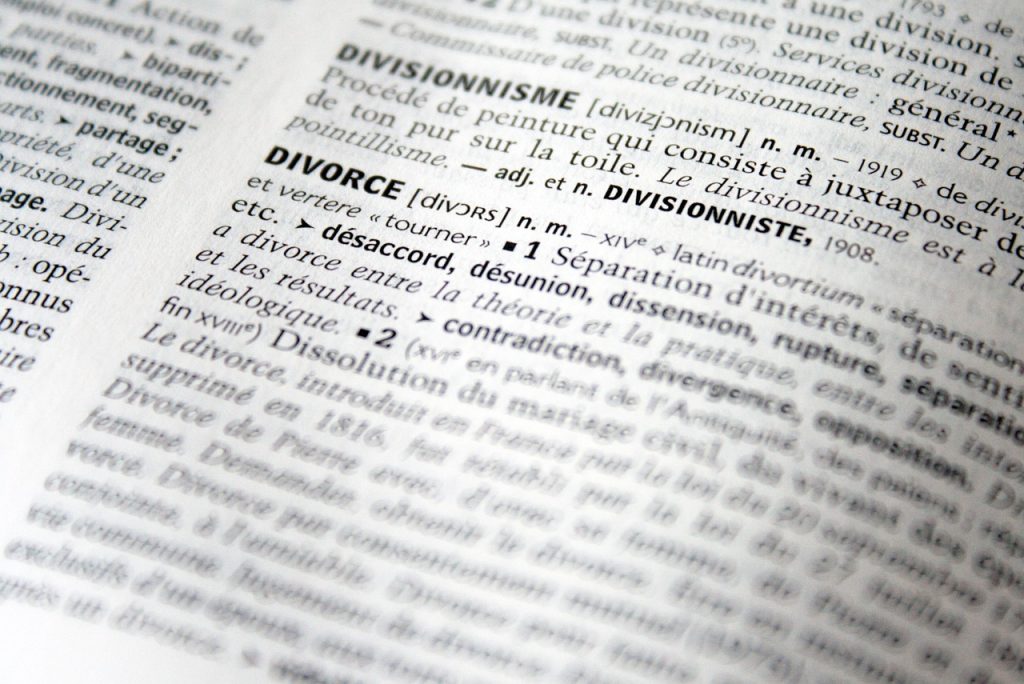Are you going through a divorce and feeling overwhelmed by the legal process? Understanding your rights during this difficult time is crucial to protect yourself and make informed decisions. In this article, we will explore the essential aspects of learning your divorce legal rights. From addressing common concerns to providing reassurance and guidance, we aim to empower you with the knowledge needed to navigate this challenging chapter in your life. So, read on to discover the key information you need about your divorce legal rights and take the necessary steps to seek assistance promptly. Plus, we’ve included some frequently asked questions with brief answers to further assist you along the way.

Learning Your Divorce Legal Rights
Table of Contents
- Understanding Divorce Legal Rights
- Types of Divorce Legal Rights
- Obtaining Information about Divorce Legal Rights
- Factors that Affect Divorce Legal Rights
- Protecting Your Divorce Legal Rights
- Common Challenges with Divorce Legal Rights
- Understanding the Divorce Legal Process
- Divorce Legal Rights and Mediation
- Divorce Legal Rights for LGBTQ+ Couples
- Frequently Asked Questions
Understanding Divorce Legal Rights
What are Divorce Legal Rights?
Divorce legal rights refer to the legal entitlements and protections that individuals have during the process of divorce. These rights include various aspects, such as property division, child custody, child support, and alimony. It is crucial for individuals going through a divorce to understand their legal rights to ensure a fair and equitable outcome.
Why is it Important to Learn Your Divorce Legal Rights?
Learning your divorce legal rights is essential as it empowers you to make informed decisions and take necessary actions to protect your interests. By understanding your rights, you can actively participate in negotiations, communicate effectively with your attorney, and navigate through the divorce process with confidence. Knowing your legal rights ensures that you are not taken advantage of and helps secure a favorable outcome in your divorce proceedings.
Types of Divorce Legal Rights
Property Division Rights
Property division rights involve the fair distribution of assets and liabilities acquired during the marriage. Understanding property division rights is crucial to ensure a fair and equitable division of marital property, which may include real estate, vehicles, bank accounts, investments, and other assets. Factors such as the duration of the marriage, individual contributions, and economic circumstances are considered when determining the division of property.
Child Custody Rights
Child custody rights pertain to the determination of who will have legal and physical custody of the children after the divorce. These rights focus on the welfare and best interests of the child, taking into account factors such as parental involvement, stability, and the child’s preferences. Understanding child custody rights helps you negotiate custody arrangements that prioritize the well-being of your child and maintain a healthy parent-child relationship.
Child Support Rights
Child support rights involve the financial obligations of each parent towards the upbringing and welfare of their children. It ensures that both parents contribute proportionately to the child’s needs, including education, healthcare, and daily living expenses. Understanding child support rights helps you ensure that adequate financial support is provided for your child’s well-being.
Alimony Rights
Alimony rights refer to the financial support provided by one spouse to the other after the divorce, particularly in cases where one spouse has a significantly higher income or earning capacity. Alimony may be awarded to provide financial support for a limited or indefinite period, depending on various factors such as the length of the marriage, economic circumstances, and the needs of the recipient spouse. Understanding alimony rights can help you determine if you are entitled to financial support or if you are responsible for providing alimony.
Obtaining Information about Divorce Legal Rights
Consulting with an Attorney
One of the most effective ways to learn about your divorce legal rights is by consulting with an experienced family law attorney. An attorney specializing in divorce cases can provide personalized advice, explain the applicable laws, and guide you through the legal process. They can assess your specific situation and help you understand your rights in relation to property division, child custody, child support, and alimony.
Researching Online Resources
Another way to gather information about divorce legal rights is through online resources. Many reputable websites provide comprehensive articles, guides, and FAQs related to divorce law. These resources often explain the basic legal principles, offer insights into common challenges, and provide practical tips for protecting your rights during a divorce. However, it is essential to verify the credibility and accuracy of the information obtained from online sources.
Attending Divorce Education Programs
Divorce education programs or workshops are designed to educate individuals about the legal and emotional aspects of divorce. These programs often cover topics such as divorce laws, child custody issues, financial planning, and rebuilding post-divorce. Attending such programs can be valuable in gaining a broader understanding of your divorce legal rights and learning from professionals and peers who have experienced similar situations.
Factors that Affect Divorce Legal Rights
State Laws
State laws play a significant role in determining divorce legal rights. Each state has its own set of laws and procedures regarding property division, child custody, child support, and alimony. It is crucial to familiarize yourself with the specific laws of your state, as they can vary widely. Understanding the laws applicable in your jurisdiction will help you navigate the divorce process effectively and ensure that your rights are protected.
Marital Agreements
Marital agreements, such as prenuptial agreements or postnuptial agreements, can have a substantial impact on divorce legal rights. These agreements outline the rights and responsibilities of each spouse in the event of a divorce and can address issues related to property division, alimony, and other matters. Understanding the terms and provisions of a marital agreement is essential to ascertain the impact it may have on your legal rights during a divorce.
Criminal History
In cases where one spouse has a history of criminal activities, such as domestic violence or substance abuse, it can significantly affect divorce legal rights. The court may consider such factors when determining child custody, visitation rights, and even property division. Understanding how criminal history can impact your legal rights is crucial to ensure the safety and well-being of yourself and your children.
History of Domestic Violence
A history of domestic violence can have profound implications on divorce legal rights. Courts prioritize the safety and well-being of individuals and children in such situations. Protecting victims of domestic violence is of utmost importance, and understanding your rights in relation to obtaining restraining orders, sole custody, and other protective measures is crucial in these cases.

Protecting Your Divorce Legal Rights
Gathering Relevant Documentation
To protect your divorce legal rights, it is important to gather all relevant documentation pertaining to your marital assets, financial resources, debts, and any other relevant information. This documentation may include bank statements, tax returns, property deeds, employment records, and other financial records. By having a comprehensive record of your financial situation, you can ensure a fair and accurate division of property and financial obligations.
Maintaining Open Communication
Maintaining open and effective communication with your attorney and ex-spouse is essential for protecting your divorce legal rights. It is important to discuss your concerns, ask questions, and provide accurate and timely information during the divorce process. Open communication can help avoid misunderstandings, address issues promptly, and ensure that your legal rights are properly advocated for throughout the proceedings.
Hiring a Skilled Attorney
One of the most effective ways to protect your divorce legal rights is by hiring a skilled and experienced family law attorney. An attorney who specializes in divorce cases can provide valuable guidance, negotiate on your behalf, and ensure that your rights are protected during the divorce process. They can advocate for your interests and help secure a fair and favorable outcome.
Considering Alternative Dispute Resolution
Alternative dispute resolution methods, such as mediation or collaborative divorce, can be effective in protecting your divorce legal rights without the need for lengthy and adversarial court proceedings. These methods promote open communication, cooperation, and the exploration of mutually beneficial solutions. By considering alternative dispute resolution, you can protect your legal rights while minimizing conflict and reducing the emotional and financial costs of divorce.
Common Challenges with Divorce Legal Rights
Uncooperative Spouse
Dealing with an uncooperative spouse can present challenges when it comes to protecting your divorce legal rights. It is important to maintain clear and open lines of communication, document all relevant interactions, and rely on your attorney to navigate through any disputes or obstacles. Your attorney can advocate for your rights and explore legal remedies, such as court intervention if necessary.
Contentious Court Proceedings
Contentious court proceedings can be emotionally draining and time-consuming. It is important to have a skilled attorney who can effectively represent your interests, present your case in court, and protect your divorce legal rights. Your attorney can help you navigate through the complexities of court proceedings, handle legal arguments, and ensure that your rights are advocated for throughout the process.
Hidden Assets
Discovering hidden assets during divorce proceedings can significantly impact property division and other financial aspects. It is crucial to work with an attorney who can employ financial experts, such as forensic accountants, to thoroughly investigate and uncover any hidden assets. By protecting your divorce legal rights and ensuring a fair division of assets, you can secure your financial future post-divorce.
Non-Payment of Child Support
Non-payment of child support is a common challenge that many individuals face during and after divorce. It is essential to understand your child support rights and work with your attorney to enforce court-ordered child support payments. Your attorney can help you navigate through the legal processes to ensure that your children receive the financial support they need.
Violation of Custody Arrangements
In cases where one parent violates custody arrangements, it is important to take necessary legal actions to protect your custodial rights and the well-being of your children. Consulting with your attorney and documenting any violations can help you advocate for the enforcement of custody arrangements and protect your divorce legal rights.

Understanding the Divorce Legal Process
Filing Petition for Divorce
The divorce legal process typically begins with one spouse filing a petition for divorce. This document initiates the legal proceedings and outlines the grounds for the divorce, the desired outcome, and any requests for child custody, support, or alimony. Filing the petition starts the process of officially dissolving the marriage.
Serving Divorce Papers
Once the petition for divorce is filed, the other spouse must be served with the divorce papers. Proper service ensures that the receiving party is aware of the legal proceedings, enabling them to respond appropriately. Serving divorce papers is a crucial step in the divorce process and must comply with the legal requirements of the jurisdiction.
Discovery Phase
During the discovery phase, both parties exchange relevant information and documentation related to their assets, debts, income, and other pertinent matters. This phase allows each spouse and their attorneys to gather evidence, assess the value of assets, and negotiate settlements. Discovery is crucial for protecting your divorce legal rights as it ensures transparency and provides an opportunity to uncover any hidden assets or financial discrepancies.
Negotiating Settlements
Negotiating settlements is a key element of the divorce legal process that allows the parties to reach mutually agreeable resolutions without going to trial. These settlements address various aspects, including property division, child custody, child support, and alimony. Understanding your divorce legal rights is essential during the negotiation process to ensure that your interests and rights are protected.
Trial and Final Judgment
If the parties are unable to reach a settlement through negotiation, the case may proceed to trial. At trial, each party presents their case, and the judge makes decisions on contested issues based on the evidence and applicable laws. The judge’s final judgment determines the division of property, custody arrangements, child support, alimony, and any other relevant matters. Understanding the trial process is crucial in protecting your divorce legal rights and effectively presenting your case before the court.
Divorce Legal Rights and Mediation
Exploring Mediation as an Alternative
Mediation offers an alternative dispute resolution method that aims to facilitate communication and cooperation between divorcing spouses. By engaging in mediation, you and your spouse work with a neutral third-party mediator to identify common ground, discuss concerns, and negotiate mutually beneficial solutions. Mediation can be an effective way to protect your divorce legal rights while minimizing conflict and reducing the emotional toll of traditional litigation.
Benefits of Mediation
Mediation offers several benefits in the divorce process. It provides an opportunity to have direct input and control over the decisions that impact your divorce legal rights. Mediation tends to be less adversarial, reducing the stress and emotional strain often associated with court proceedings. Additionally, mediation can be more cost-effective and time-efficient compared to traditional litigation.
How Mediation Impacts Legal Rights
During mediation, you and your spouse have the opportunity to openly discuss and negotiate the terms of your divorce, including property division, child custody, child support, and alimony. Mediation allows you to protect your divorce legal rights by actively participating in the decision-making process. However, it is important to consult with an attorney to ensure that the proposed agreements align with your legal rights and protect your long-term interests.
Divorce Legal Rights for LGBTQ+ Couples
Unique Legal Considerations
LGBTQ+ couples may face unique legal considerations when it comes to divorce. Laws and regulations regarding marriage, divorce, child custody, and property division can vary depending on the jurisdiction and the couple’s legal recognition. Understanding the specific legal landscape and protections available to LGBTQ+ individuals is crucial in protecting divorce legal rights.
State Laws and Recognitions
State laws and recognitions play a significant role in determining divorce legal rights for LGBTQ+ couples. Some states may fully recognize same-sex marriages, while others may have limited recognition or no recognition at all. It is important to consult with an attorney well-versed in LGBTQ+ family law to understand the implications for property division, child custody, child support, and alimony based on your specific circumstances.
Protecting Parental Rights
Parental rights can be particularly important for LGBTQ+ couples going through a divorce, especially when it comes to issues of child custody and visitation. Understanding your parental rights and seeking legal guidance can help protect your rights as a parent and ensure that the best interests of your children are prioritized throughout the divorce proceedings.
Frequently Asked Questions
How long does the divorce process take?
The duration of the divorce process can vary depending on several factors, including the complexity of the case, the level of conflict, and the backlog of the court system. In some cases, a divorce can be finalized within a few months, while others may take several years to reach a resolution.
Can I modify child custody arrangements?
Child custody arrangements can be modified if there is a significant change in circumstances or if it is in the best interests of the child. However, modifications require court approval and may involve presenting evidence to support the requested changes.
What factors determine the division of property in a divorce?
The division of property in a divorce is determined based on several factors, including the duration of the marriage, each spouse’s contributions, the value of assets and debts, and the economic circumstances of each party. Additionally, state laws governing property division play a significant role in determining how assets and debts are divided.
It is important to remember that divorce laws and legal rights can vary depending on the jurisdiction and individual circumstances. Consulting with an experienced family law attorney is advisable to fully understand your specific divorce legal rights and protect your interests throughout the process. Take the next step today and seek professional assistance to navigate through your divorce proceedings successfully.